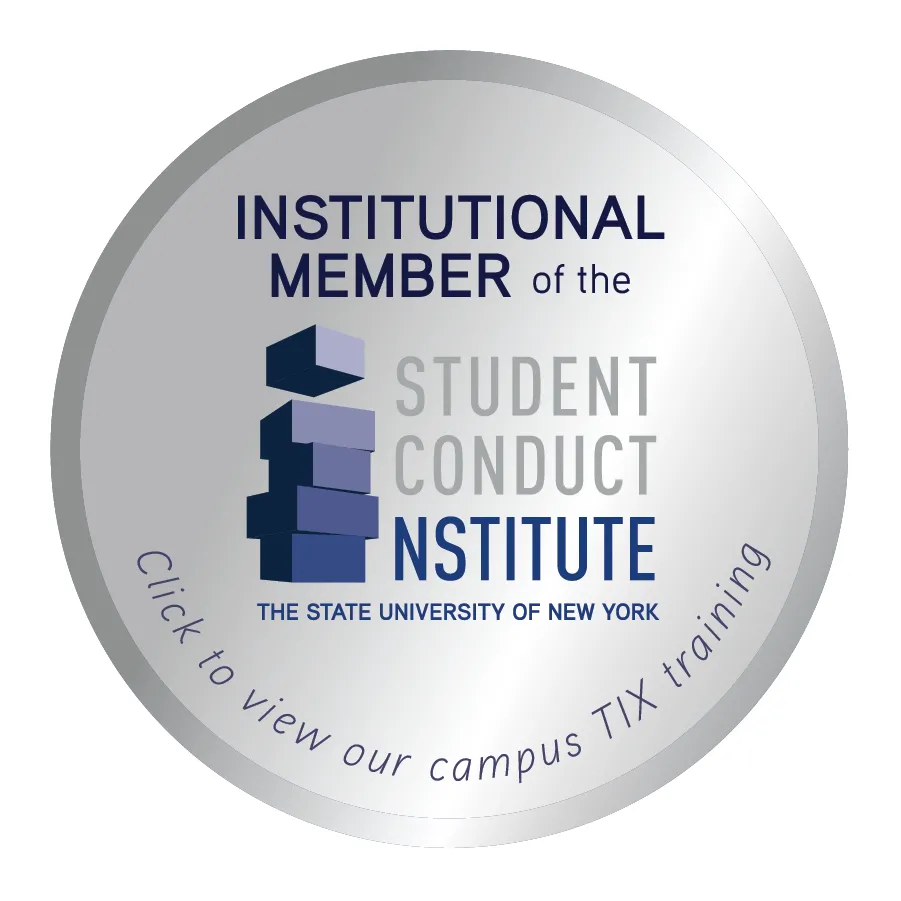Our Team
The Title IX coordinator, Title IX investigator and prevention specialist, and deputy coordinators are responsible for overseeing and coordinating the University’s response to reports of sexual misconduct, sexual harassment, stalking, and partner and domestic violence and receive specific training in order to respond to inquiries, incidents, and concerns.
Reports and inquiries can be made directly to the Title IX coordinator. All non-confidential reports will be reported to this position. If you feel you have been subjected to sexual misconduct or discrimination, you should seek assistance as soon as possible.
If you have any questions regarding Title IX, sexual misconduct, or the information on this site, please contact any of these offices for more information:
Title IX Coordinator
- Angela Shambarger, Title IX coordinator, ashambarger@une.edu, (207) 221-4554
Deputy Title IX Coordinators
- Hahna Patterson assistant Vice President, hpatterson@une.edu, or (207) 221-4418
- Heather Davis, director of Athletics, hdavis@une.edu, or (207) 602-2629
- Janna Merritt, associate director for Human Resources, jmerritt2@une.edu or (207) 221-4307
- Ray Handy, associate dean of Student Affairs, rhandy@une.edu, or (207) 221-4213
- Shaylah Kelly, Employee Relations and Development Specialist, skelly14@une.edu or (207) 602-2524
- Shane Long, assistant Dean of Students, slong11@une.edu or (207) 602-2372
The Student Conduct Office, Student Affairs
- Anthony Montalbano, director of Student Resolution, amontalbano@une.edu or (207) 602-2372
- Jennifer DeBurro, dean of students and assistant provost for Student Affairs, jdeburro@une.edu, (207) 602-2372

Compliance Training
In order to serve as an effective resource, our Title IX coordinators, investigators, and decision-makers utilize training from the Student Conduct Institute.
Training in Progress
SUNY Student Conduct Institute's Title IX Compliance Learning Path:
- 2021–2022: Title IX Final Rule Basics
- 2021–2022: Due Process Part One: Theory and History
- 2021–2022: Title IX Final Rule Basics
- 2021–2022: Due Process Part One: Theory and History
- 2021–2022: What is Severe, Persistent, and Objectively Offensive Title IX Sexual Harassment?
- 2021–2022: What is Affirmative Consent?
- 2021–2022: Privacy, Confidentiality, and Privilege in Disclosures of Sexual and Interpersonal Violence
- 2021–2022: Cultural Relevance and Inclusiveness, and Responding to Sexual and Interpersonal Violence on Campus
- 2021–2022: No Contact Orders, Emergency Removals, and Interim Suspensions
- 2021–2022: Legal Framework for Understanding Conflicts of Interest and Bias
- 2021–2022: Understanding the Investigative Report Template for Investigations of Title IX Sexual Harassment
- 2021–2022: Effective Interviewing of Parties and Witnesses
- 2021–2022: Collecting and Understanding Specialized Evidence
- 2021–2022: Virtual Hearing Technology
- 2021–2022: Relevance and Decorum in a Title IX Hearing
- 2021–2022: Determining Relevance in Title IX Hearings
- 2021–2022: Cross-Examination in a Title IX Hearing
- 2021-–022: Neurobiology of Sexual Assault Trauma (Part 1 of 3) Introduction
- 2021–2022: Neurobiology of Sexual Assault Trauma (Part 2 of 3) When Attack Is Detected or Stress Kicks In
- 2021–2022: Neurobiology of Sexual Assault Trauma (Part 3 of 3) Reflexes and Habits
